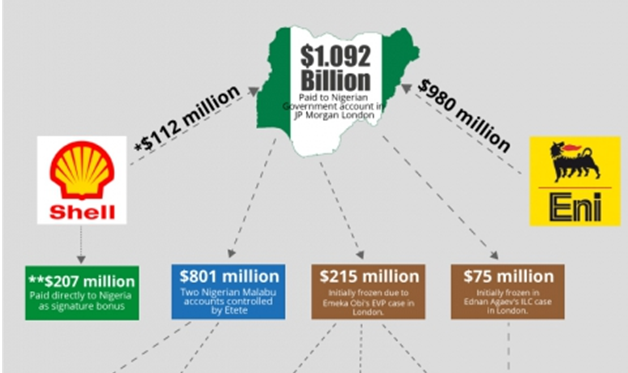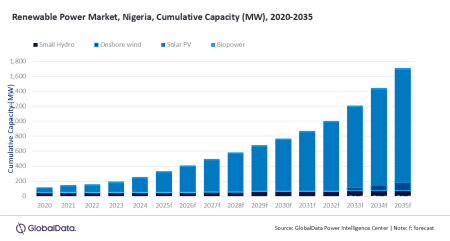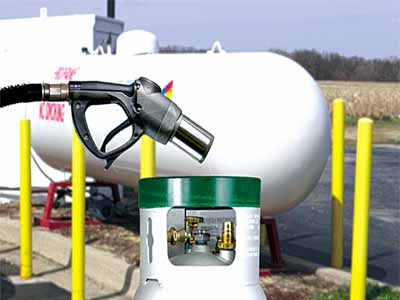
OpeOluwani Akintayo
26 January 2018, Sweetcrude, Lagos — A leaked memo making the rounds has revealed how Minister of State for Petroleum, Ibe Kachikwu, asked President Buhari to agree on an out-of-court settlement over controversial OPL 245.
Kachikwu had in December 2017, written a letter to Buhari, urging him to accept the agreement signed by the three past administrations over the $1.1 billion oil block considered to be the juiciest in Nigeria so far.
The leaked memo comes on the heels of Nigeria’s Attorney General, Abubakar Malami, asking the Economic and Financial Crimes Commission, EFCC, to review the charges of fraud against those accused in the Malabu scandal.
Malami had on Thursday in court, read out charges contained in a memo by a counsel to Mohammed Adoke.
According to the memo, Malami said the proof of evidence does not give adequate proofs to link of fraud as allegedly committed by Adoke.
In that regard, the counsel, Kanu Agabi, asked the Abuja Division of the Federal High Court to issue an order affirming that the charges against Adoke were illegal because his client had acted on the directives of former President, Goodluck Jonathan.
Interestingly, Malami was found to have signed one of three agreements collectively referred to as the Settlement Agreement, and others, according to a local publication.
Agabi then asked the court to strike out the charges against Adoke as they are illegal.
He also told the court that the memo was proof of his client’s innocence.
In the leaked memo, titled: “Re: Forwarding of Case File in Respect of Charge No. FHC/ABJ/CR/268/17 and FCT/HC/CR/124/2017 – Malabu Oil & Gas Ltd”, Kachikwu told Buhari that he aligned with the advice of Malami that the Federal Government should respect the resolution of the Settlement Agreement as it was consistent with “the consistent role of three (3) predecessor President in the matter, and the potential negative view of Nigeria that may follow should international arbitration ensue from this matter.”
Kachikwu added that if Buhari decided to go against the Settlement Agreement or “take steps that will undermine its integrity” it may turn out costly for the country.
The oil minister then explained that instead of abrogating the agreement, the Nigeria government should use it as a means of acquiring a stake in OPL 245 by converting it to a Production Sharing Contract (PSC) with Shell and Eni.
“This will not only ensure that Nigeria will bear no funding obligation for the development of the block, but will be strategic, yet, commercial approach and solution to the OPL 245 issue which will ensure that Nigeria is focused on obtaining an immediate benefit from the OPL 245,” he wrote.
The ‘Settlement Agreement’
Made on April 29, 2011, the agreement contains three separates resolution agreements. The first, titled “BLOCK 245 MALABU RESOLUTION AGREEMENT” was signed between representatives of the federal government and those of Malabu, which was represented during the discussions by a former petroleum minister, Dan Etete.
The second agreement, titled “BLOCK 245 RESOLUTION AGREEMENT” was between the Nigerian government and officials of Shell and Eni/AGIP; while the third agreement, titled “BLOCK 245 SNUD RESOLUTION AGREEMENT”, was signed by officials of the Nigerian government and Shell.
The immediate past attorney general of the federation, Mohammed Adoke, and immediate past petroleum minister, Diezani Alison-Madueke signed all the agreements on behalf of the federal government.
Both Adoke and Madueke are being investigated by EFCC for their roles in the alleged Malabu scam.
According to the agreements, OPL 245 was first transferred to Malabu, to the Nigerian government and then from the government to Shell and Eni. It also effectively cancelled all previous lawsuits and judgments related to the case.
It was based on these agreements that Shell and Eni paid a total of $1.3 billion into Nigerian government accounts, which later showed that a bulk of the money ended up in accounts of fake companies and suspicious characters.



